Discover the Women of the Hall
These are the Inductees of the National Women’s Hall of Fame. Select any of the women to discover their stories and learn how they have influenced other women and this country.
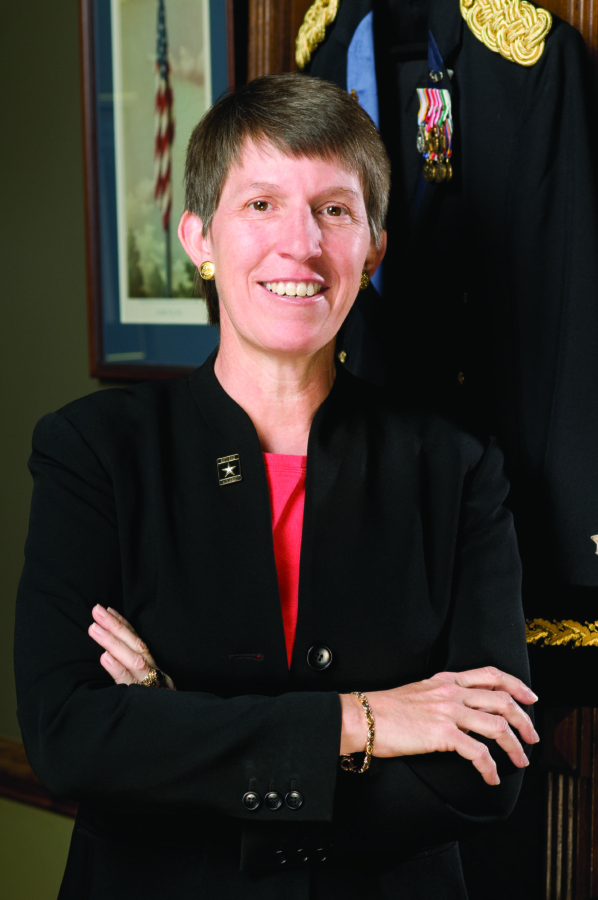 Rebecca Halstead
Government
1959
New York
2021
Rebecca Halstead
Government
1959
New York
2021

Rebecca Halstead
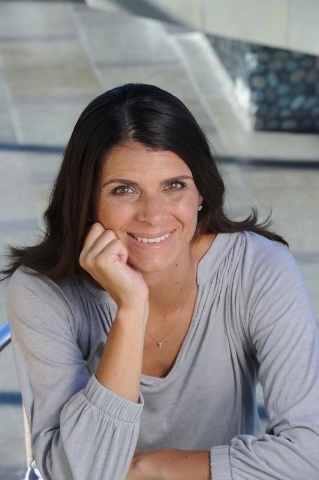 Mia Hamm
Athletics
1972
Alabama
2021
Mia Hamm
Athletics
1972
Alabama
2021

Mia Hamm
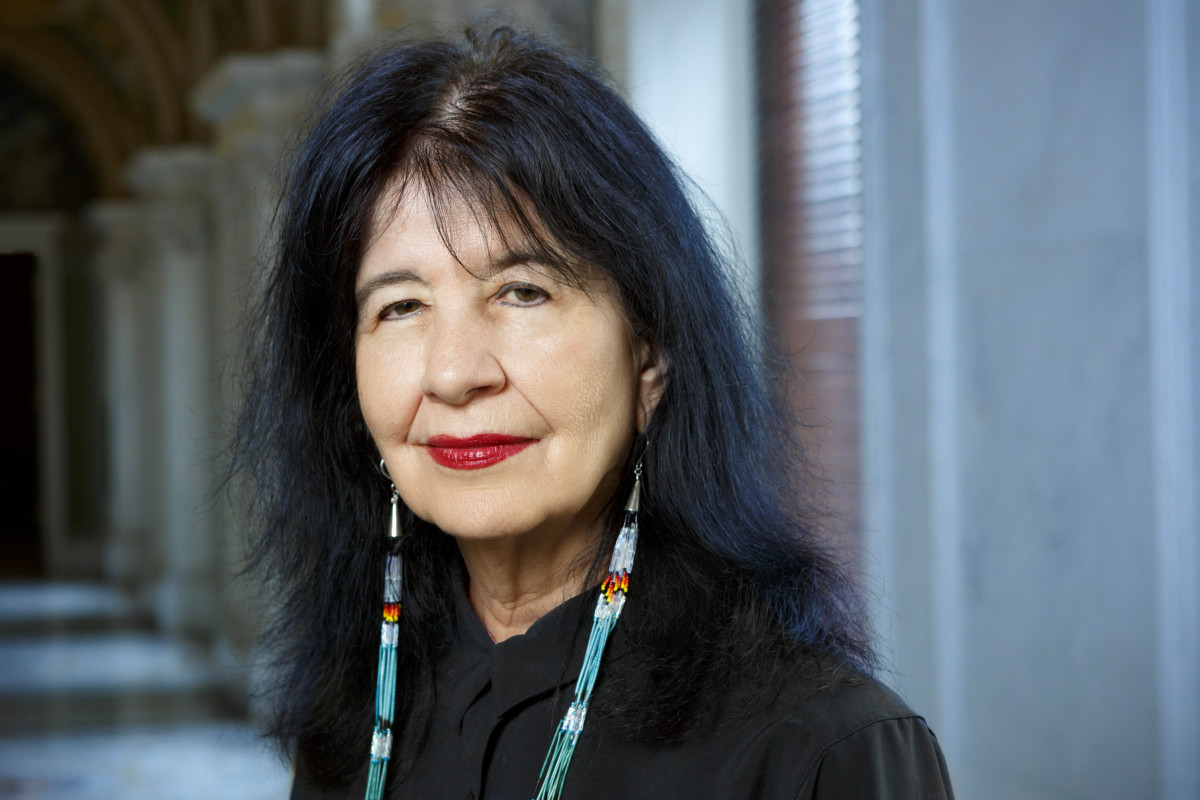 Joy Harjo
Arts
1951
Oklahoma
2021
Joy Harjo
Arts
1951
Oklahoma
2021

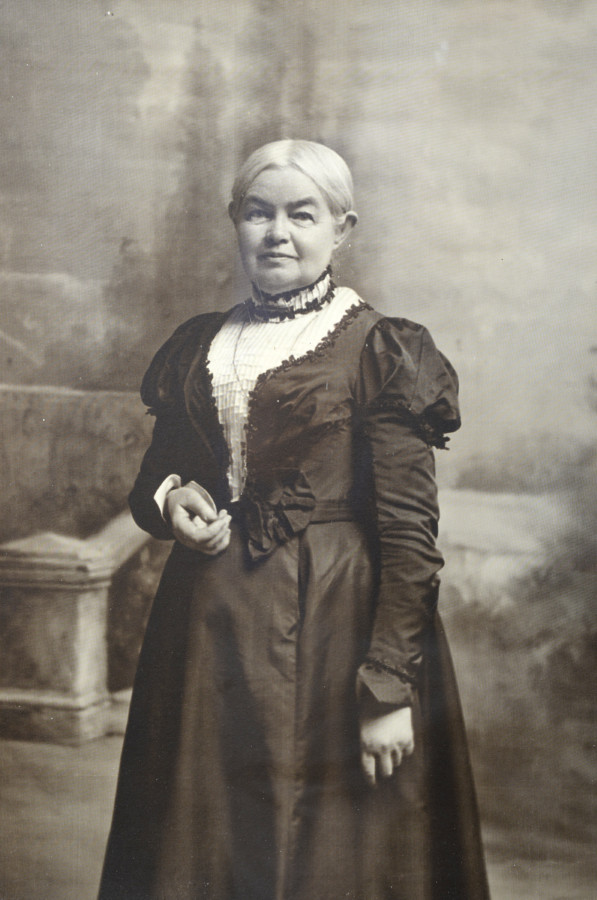 Emily Howland
Humanities
1827
New York
2021
Emily Howland
Humanities
1827
New York
2021

Emily Howland
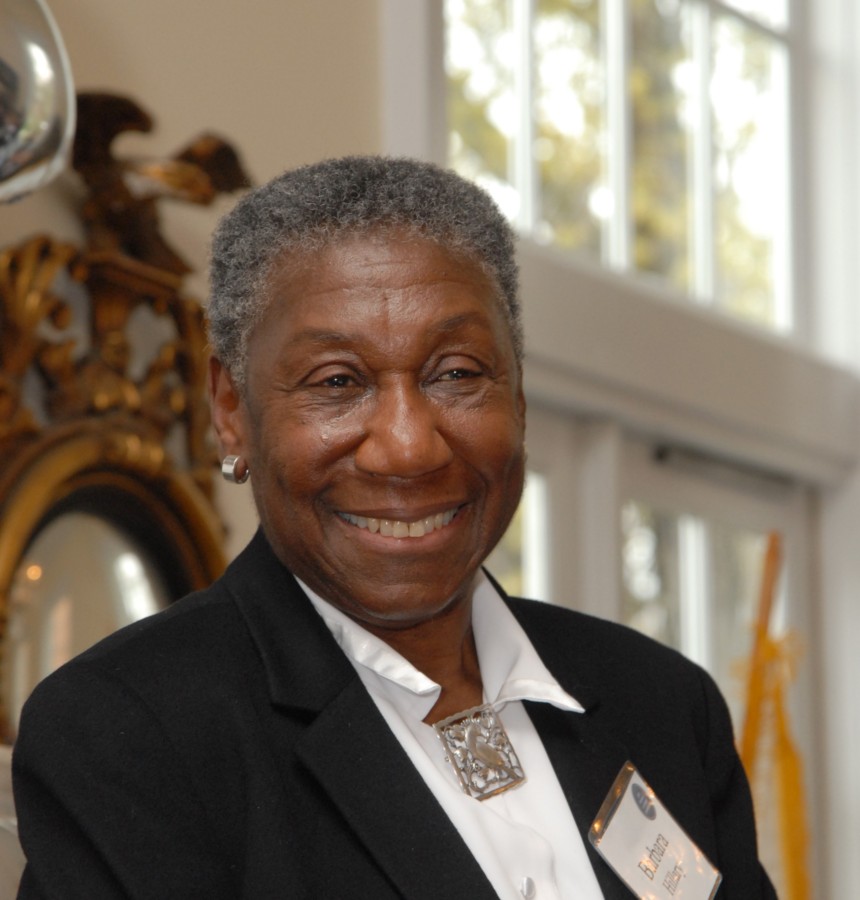 Barbara Hillary
Athletics
1931
2020
Barbara Hillary
Athletics
1931
2020

Barbara Hillary
The first Black woman to have ever traveled to both the North and South Pole- both after the age of 75. Inspired by her expeditions, Hillary took interest in the effects of climate change on the polar caps and became a fierce advocate for combating climate change.
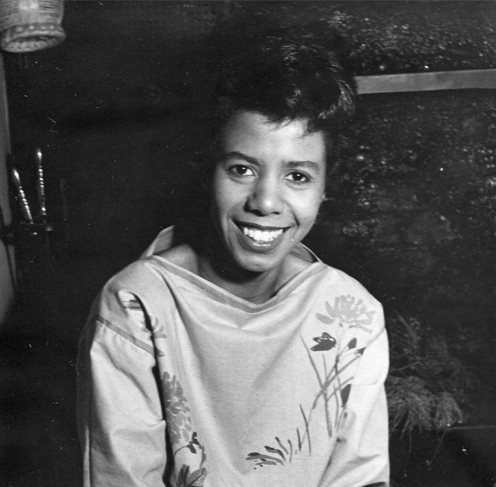 Lorraine Hansberry
Arts, Humanities
1930
Illinois
2017
Lorraine Hansberry
Arts, Humanities
1930
Illinois
2017

Lorraine Hansberry
A groundbreaking playwright and essayist best known as the author of A Raisin in the Sun, which ensured a place for the Black experience in American theatre. She was the first Black woman to have a show produced on Broadway, the first Black playwright and the youngest American to receive the prestigious New York Drama Critics’ Circle Award for Best American Play, and the first Black American to win the distinguished Drama Desk Award.
 Billie Holiday
Arts
1915
Maryland
2011
Billie Holiday
Arts
1915
Maryland
2011

Billie Holiday
Considered by many to be one of the greatest jazz vocalists of all time, Billie Holiday forever changed the genres of jazz and pop with her unique style. Holiday began her career as a singer in Harlem nightclubs in 1931, without formal musical training. She went on to record and tour with a number of famous musicians like Benny Goodman and Lester Young, and officially began recording under her own name in 1936. Holiday, known for her deeply moving and personal vocals, remains a popular musical legend more than fifty years after her death.
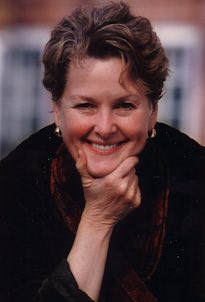 Swanee Hunt
Philanthropy
1950
Texas
2007
Swanee Hunt
Philanthropy
1950
Texas
2007

Swanee Hunt
Swanee Hunt is the former Director of the Women and Public Policy Program at Harvard University’s Kennedy School of Government. An internationally recognized expert on foreign affairs and diplomacy, Hunt is heralded for her trailblazing work to increase the participation and inclusion of women in peace processes around the world. She is also President of Hunt Alternatives Fund, a private foundation committed to advancing social change at local, national and global levels.
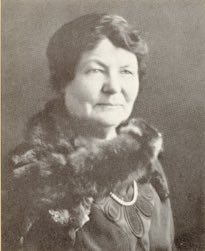 Martha Matilda Harper
Business
1857
Canada
2003
Martha Matilda Harper
Business
1857
Canada
2003

Martha Matilda Harper
After 25 years of low-wage service, Martha Matilda Harper started a beauty products system called the Harper Method, eventually realizing over 500 franchises world-wide in the 1920s. Harper is credited with creating the modern retail franchising method. She was also known as a social justice advocate ahead of her time, offering evening hours for working women, profit-sharing and personal time off. She refused to use permanents or hair dyes in her salons because of the associated chemicals.
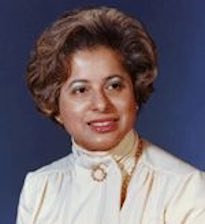 Patricia Roberts Harris
Government
1924
Illinois
2003
Patricia Roberts Harris
Government
1924
Illinois
2003

Patricia Roberts Harris
In 1965, President Lyndon B. Johnson appointed Harris ambassador to Luxembourg, making her the first African-American women to hold the position of ambassador. She then served as the first African-American woman to head a law school, when she was appointed dean of Howard University School of Law in 1969. In 1977, President Jimmy Carter chose Harris to be Secretary of Housing and Urban Development and eventually Secretary of Health, Education and Welfare, thus making her the first African-American woman to be appointed a Cabinet Secretary.
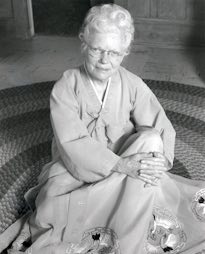 Bertha Holt
Humanities
1904
Iowa
2002
Bertha Holt
Humanities
1904
Iowa
2002

Bertha Holt
A pioneer in international adoption, Bertha and her husband adopted 8 Korean children in addition to their own 6 children. The Holt Adoption program, later called Holt International Children’s Services, was established in 1956 to help those interested in inter-country adoptions.
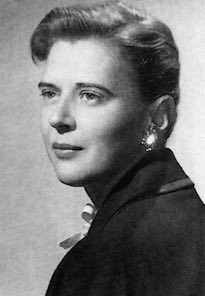 Beatrice A. Hicks
Science
1919
New Jersey
2001
Beatrice A. Hicks
Science
1919
New Jersey
2001

Beatrice A. Hicks
Engineer, inventor, and business owner, Beatrice Hicks was a pioneer in gaining recognition for women engineers at a time when less than 1% of all U.S. employed engineers were women. She was a founding member and first president of the Society of Women Engineers (1950), which now has a membership of more than 16,000.
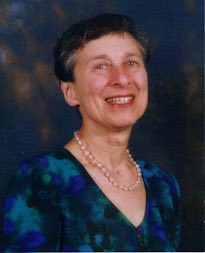 Barbara Holdridge
Arts, Business
1929
New York
2001
Barbara Holdridge
Arts, Business
1929
New York
2001

Barbara Holdridge
Barbara Holdridge is the co-founder of Caedmon Records, the first commercially successful project to record and distribute the works of living authors as well as recordings of past literary works by distinguished actors.
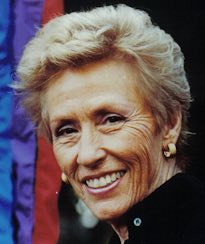 Jeanne Holm
Government
1921
Oregon
2000
Jeanne Holm
Government
1921
Oregon
2000

Jeanne Holm
In her 33 years in the Armed Forces from 1942 to 1975, Major General Holm, USAF, Retired, rose from private to two-star general. Her promotion in 1973 made her the first woman in the history of the U.S. armed forces to achieve the rank of major general. Her work to open ROTC and the military academies to women gave educational benefits and the opportunity for a professional military career to women from all walks of life.
 Julia Ward Howe
Humanities
1819
New York
1998
Julia Ward Howe
Humanities
1819
New York
1998

Julia Ward Howe
Suffragist and author of “Battle Hymn of the Republic.” Howe was a lecturer on religious subjects, a playwright and an organizer of a women’s peace movement. Co-founder (with Lucy Stone et al) of the New England Women Suffrage Association, she lectured and wrote extensively in support of the freedom of women to have an equal place with men in both public and private life.
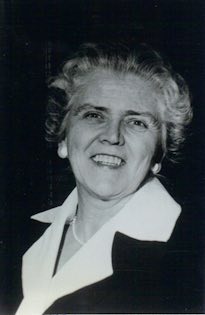 Mary A. Hallaren
Government
1907
1996
Mary A. Hallaren
Government
1907
1996

Mary A. Hallaren
Leader who, as Director of the Women’s Army Corps, championed permanent status for women in the military after World War II. Later, as Director of Women in Community Service, Hallaren advocated employment opportunities for at-risk women.
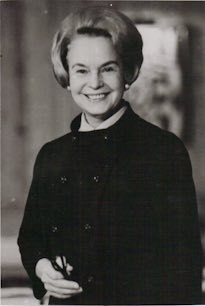 Oveta Culp Hobby
Government
1905
1996
Oveta Culp Hobby
Government
1905
1996

Oveta Culp Hobby
Shaped the development of two major government institutions as first Director of the Women’s Army Corps and first Secretary of the Department of Health, Education and Welfare. She was the first female to attain the rank of United States Colonel and the only woman to serve in President Dwight D. Eisenhower’s cabinet.
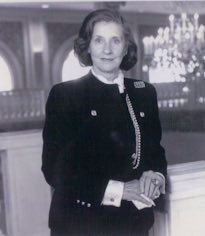 Wilhelmina Cole Holladay
Arts, Business, Philanthropy
1922
1996
Wilhelmina Cole Holladay
Arts, Business, Philanthropy
1922
1996

Wilhelmina Cole Holladay
Founder of the National Museum of Women in the Arts in Washington, D.C., which brings national and international attention to the vast achievements of women in art.
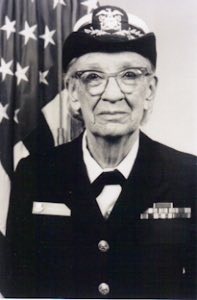 Grace Hopper
Science
1906
New York
1994
Grace Hopper
Science
1906
New York
1994

Grace Hopper
A mathematics genius and computer pioneer, Grace Hopper created computer programming technology that forever changed the flow of information and paved the way for modern data processing. In 1952, Hopper was credited with creating the first compiler for modern computers, a program that translates instructions written by a programmer into codes that can be read by a computer. Hopper was the first woman to hold the rank of Rear Admiral in the U.S. Navy.
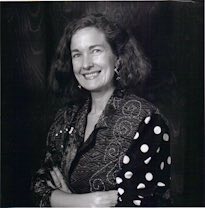 Helen LaKelly Hunt
Philanthropy
1949
Texas
1994
Helen LaKelly Hunt
Philanthropy
1949
Texas
1994

Helen LaKelly Hunt
Creative philanthropist who has used her own resources and others to create women’s funding institutions. Hunt is Co-founder of the National Network of Women’s Funds, and creator of the New York Women’s Foundation, the Dallas Women’s Foundation, and The Sister Fund, all of which provide resources to support grass roots women’s programs and projects.
 Zora Neale Hurston
Arts
1891
Alabama
1994
Zora Neale Hurston
Arts
1891
Alabama
1994

Zora Neale Hurston
Novelist, anthropologist and folklorist who contributed greatly to the preservation of African American folk traditions and to American literature. Hurston’s best known works include Their Eyes Were Watching God and her autobiography, Dust Tracks on the Road.
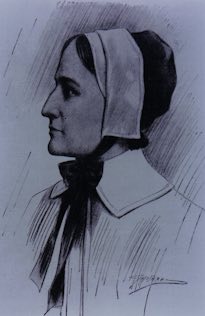 Anne Hutchinson
Humanities
1591
England
1994
Anne Hutchinson
Humanities
1591
England
1994

Anne Hutchinson
Religious leader who insisted on practicing her religious faith as she chose, including holding religious meetings in her home, the first woman in the new world to do so. As a result, she was banished from the Massachusetts Bay Colony.
 Dolores Huerta
Humanities
1930
New Mexico
1993
Dolores Huerta
Humanities
1930
New Mexico
1993

Dolores Huerta
Co-founder (with Cesar Chavez) of the United Farm Workers of America, the nation’s first successful and largest farm workers union. The UFW is dedicated to helping immigrant / migrant people of all ages. Huerta is known as a brilliant organizer, speaker, lobbyist, political strategist and human rights advocate.
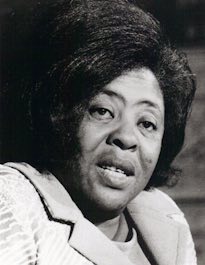 Fannie Lou Hamer
Humanities
1917
Mississippi
1993
Fannie Lou Hamer
Humanities
1917
Mississippi
1993

Fannie Lou Hamer
Mississippi sharecropper and organizer of the Mississippi Freedom Party, which challenged the white domination of the Democratic Party. Hamer succeeded in integrating the state delegation, and she was a tireless champion for poor minorities in her state and nationwide.
